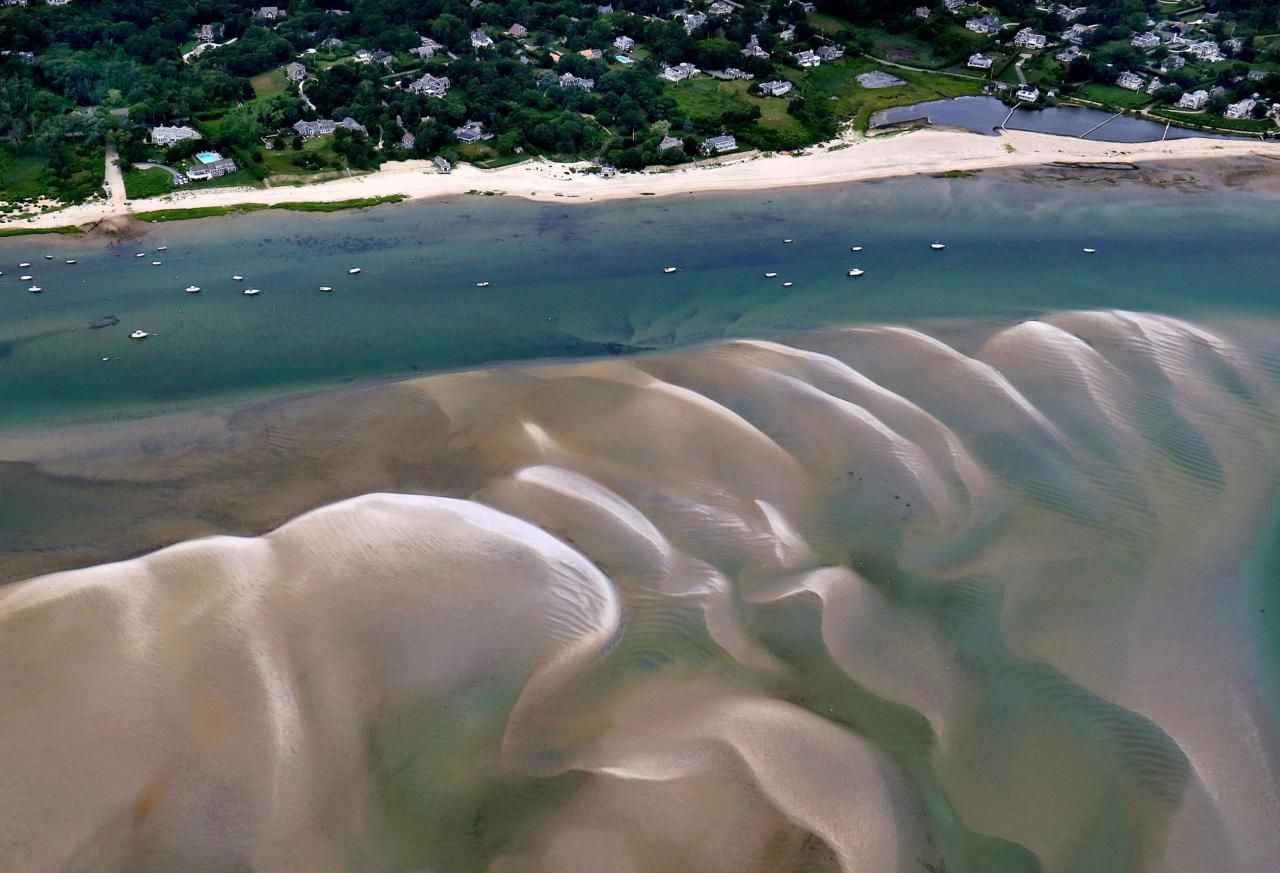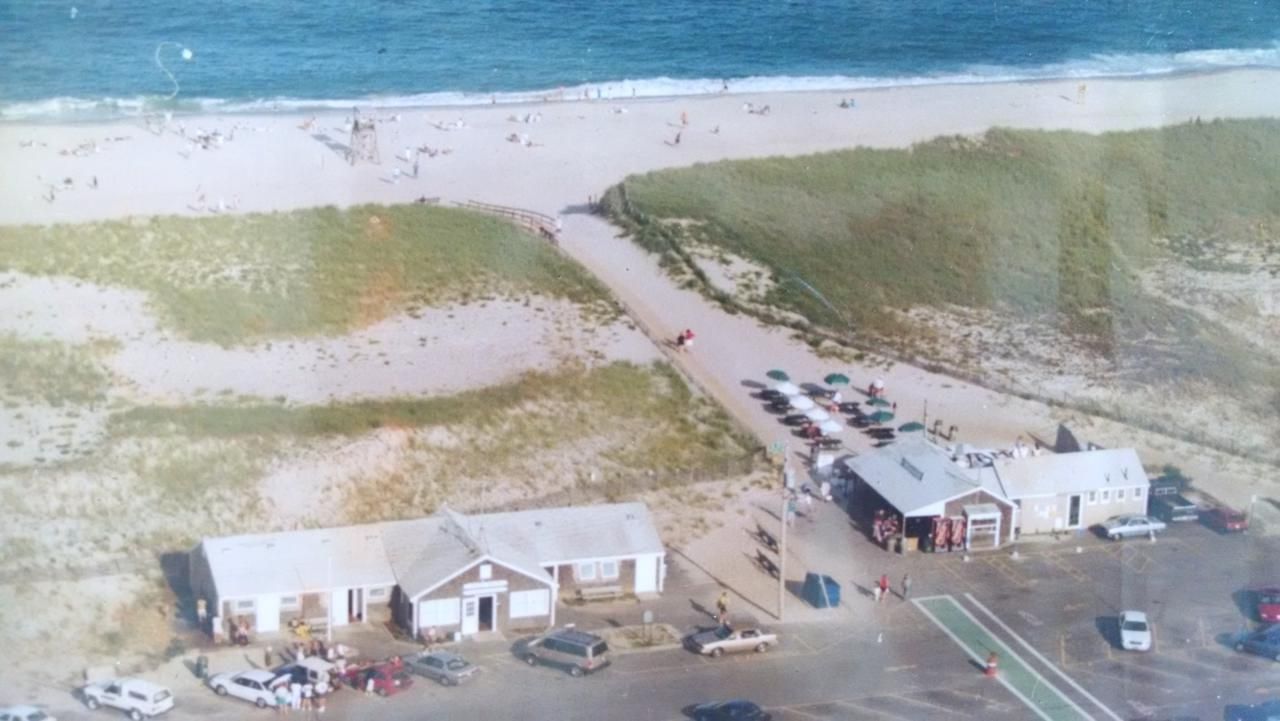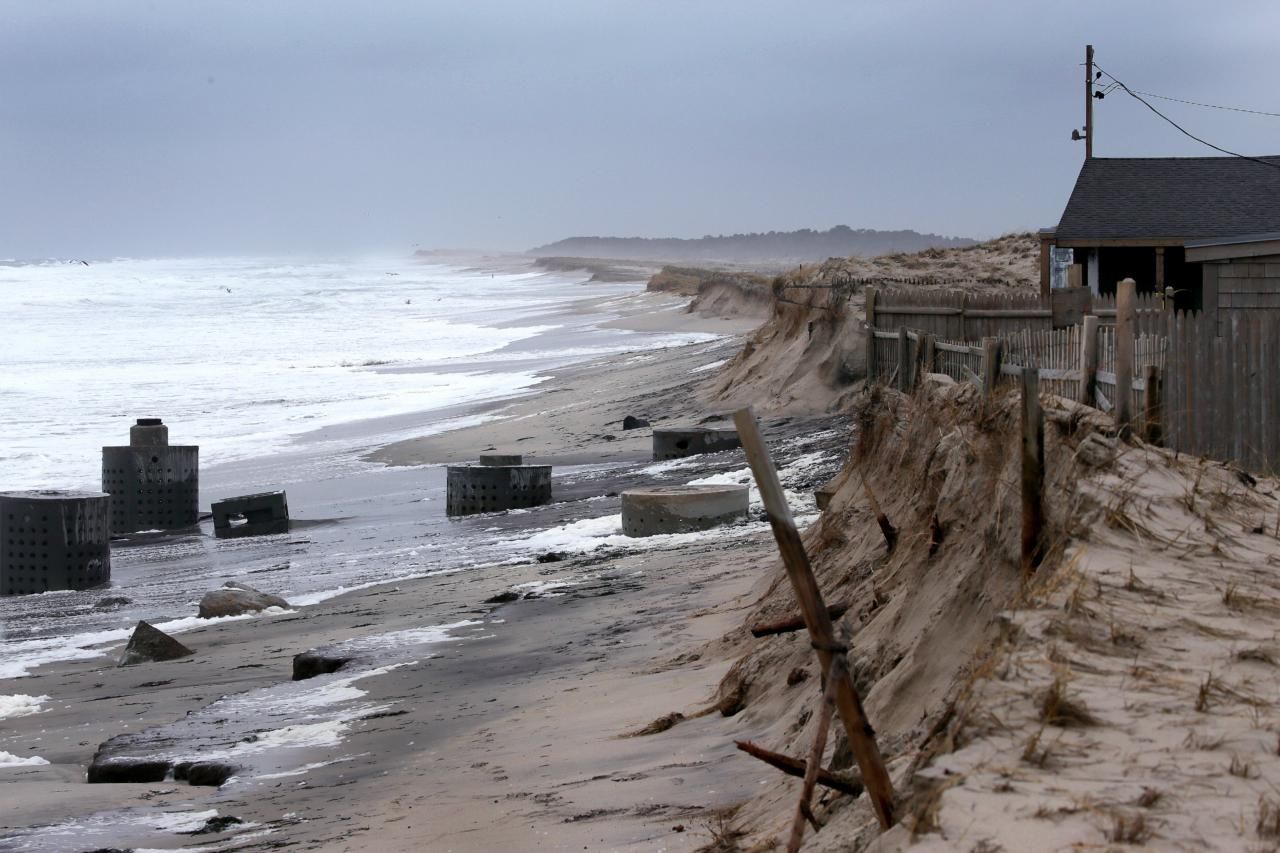The Cape Cod National Seashore attracts more than 4 million tourists each year, generating hundreds of millions of dollars in revenue while creating thousands of local jobs. All of that may be under threat from climate change, as Cape Cod experiences the ravages of worsening erosion, flooding, rising ocean temperatures, and rising sea levels.
That was the message shared with a full house of nearly 400 members of the public who attended an Oct. 22 forum organized by the Pulitzer Center, The Boston Globe, and Boston University’s Institute for Sustainable Energy, hosted at the Boston University Questrom School of Business. Speakers at the event included climate scientists, a state senator, Cape business owners and residents, high school students, and journalists discussing damage to the Cape as extreme storms and erosion have altered or wiped out homes, fisheries, commercial property, and unique wildlife native to the region.
Reporters and photographers from The Boston Globe took the audience behind the scenes into the making of their multimedia project, “At the Edge of a Warming World,” which received support from the Pulitzer Center and is part of Pulitzer’s nationwide Connected Coastlines reporting initiative that launched last month. Nestor Ramos, a Boston Globe columnist and lead reporter on the project, wove together stories from homeowners, beachgoers, scientists, fishermen, and business owners for an immersive print, visual, and audio experience of how climate changes are destabilizing life on the Cape.
Boston Globe photographer John Tlumacki shared a series of dramatic photographs showing the Cape’s natural beauty and destruction. Asked how one takes a picture of climate change, veteran photographer Tlumacki replied: “It’s not easy; it’s probably the most difficult assignment I ever did in my career for The Globe.”
Tlumacki highlighted a photo of a young girl playing in the sand as an abnormal storm blew in—an image that he felt illustrated the larger story of residents going about their lives while an imminent threat looms. The Globe also screened a 12-minute short documentary, which is available on the Pulitzer Center’s website for educational use; the film documented stories of pressure on the Cape from the loss of historic roads and shifting bird migrations to erased buildings and landscapes.
“We’re on the front line here of climate change, and we have opportunities to really change how people react to that,” Linda Deegan, senior scientist at Woods Hole Research Center, said of the critical role that journalism must play in explaining the climate crisis to the public. Effectively communicating the urgency of the climate crisis means striking a balance between urgent, factual information and stories that galvanize action rather than leaving readers feeling powerless, she said.
“The Globe did a fantastic job because they threaded the needle exactly right,” said Deegan, “You also have to make [the information] accessible so that [readers] ...understand how critical and how near-term and how important this is, but you don’t scare people to death.”
Scientists, policymakers, business owners, and members of the media talked about factors that alter weather patterns and what rising sea levels mean for Cape Cod residents. Deegan sat alongside Senator Julian Cyr, who represents Cape Cod, Martha’s Vineyard, and Nantucket in the Massachusetts State Senate.
While the Cape has experienced negative effects of climate change for some time, Cyr said, “it’s just coming so much faster than we even expected….At a state-level, we need to look at both adaptation and mitigation.” Adapting to climate change means reducing current threats impacting the environment, like investing in more resilient infrastructure, while mitigating climate change means addressing the causes of the climate crisis by curbing carbon emissions.
Panelists agreed that a combination of both will be needed to preserve their sliver of paradise—and they called for legislation to support under-resourced communities, since such solutions can cost billions of dollars.
“One of the things that’s most sort of charming and wonderful about the Cape is that it’s not just sort of a rich person’s playground. It’s diverse in a lot of ways,” said Ramos. Ramos said economic diversity gives the Cape its unique character; both its demographics and diversity of landscape, flora, and fauna draw millions of people each year from all over the world.
Indira Lakshmanan, executive editor at the Pulitzer Center, moderated the final panel of the evening featuring high school students who used a lesson plan based on The Boston Globe's reporting project, created by the Pulitzer Center. Lakshmanan also fielded audience questions about climate messaging and equitable adaptation and mitigation measures on the Cape.
A student asked John Ohman, a climate activist and member of the Assembly of Delegates in Barnstable County featured in The Globe’s project, about challenges to businesses trying to survive extreme weather on the Cape. “Sustainability is much more important than wealth for the future of your generation,” said Ohman, whose iconic clam shack, Liam’s, was a mainstay of Nauset Beach for three decades before it was washed away by waves and sand last year.
The story of Ohman losing his business to climate disruption is a stark reminder of what’s at stake as climate change intensifies. Deegan argued that the combination of intensifying climate disruption and strong local government has uniquely positioned Cape Cod and Massachusetts to take the lead on solutions and set an example for other parts of the United States.
“We can [still] have clam shacks,” said Deegan. “We just can’t have Liam’s at that spot on the Cape forever because that spot on the Cape isn’t going to be there forever."
Three students from Boston Latin School's Youth Climate Action Network club, YouthCAN, also presented as part of the program. Student activists gave remarks on their experience reading The Boston Globe article, exploring the Pulitzer Center’s free curriculum, and taking action to fight climate change.
“We learned a lot from working through the article,” said Eric Luong, YouthCAN member from the Boston Latin School. “The Pulitzer curriculum is a great way to facilitate and extend that learning, and such an important issue should definitely be taught in schools.”
Luong added, “It is crucial that the communities who will be hit first and worst by rising sea levels and heat island effects be included in these conversations. It is not just about people who can afford to vacation on the Cape, and we’ve often found it incredibly valuable to raise the social justice elements woven all throughout the climate crisis.”
Nico Gentile, a student at Sandwich High School on the Cape, urged lawmakers to support sustainable development and shared information about the Cape and Islands Youth Climate Action Summit he organized for Nov. 6, which will bring together students and teachers from across Cape Cod for workshops on climate, with participation from the Pulitzer Center and The Globe.
Ian Woodbury, another teen at Boston Latin School, echoed the commitment of youth climate activists everywhere. "This is our world and our future, and climate change is a fight that we care passionately about."






